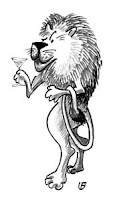I have a perspective on this issue (based in part on observations I made when I was living in Germany) that I see rarely voiced—that's why I'm posting, even though I'm late to the party.
I think Assange's argument for total transparency contains a basic fallacy: That when you take one part out of a dynamic system, everything else stays the same. In this case, that when all communication becomes public, it will result in complete transparency. I think this is not the case: If people want to keep their communication secret in plain view, they start to speak in code. Result: Less transparency! Moreover, the communication is now harder to interpret.
More in my comment...
"…a lot more cut and dry"?
13 hours ago












